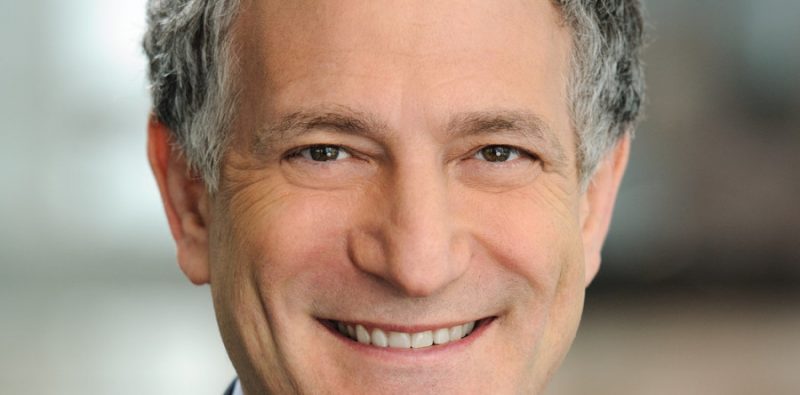By
Source

Sidewalk Labs, a Start-Up Created by Google, Has Bold Aims to Improve City Living
Google’s ambitions and investments have increasingly broadened beyond its digital origins in Internet search and online advertising into the arena of physical objects: self-driving cars, Internet-connected eyeglasses, smart thermostats and a biotech venture to develop life-extending treatments.
Now Google is getting into the ultimate manifestation of the messy real world: cities.
The Silicon Valley giant is starting and funding an independent company dedicated to coming up with new technologies to improve urban life. The start-up, Sidewalk Labs, will be headed by Daniel L. Doctoroff, former deputy mayor of New York City for economic development and former chief executive of Bloomberg L.P. Mr. Doctoroff jointly conceived the idea for the company, which will be based in New York, with a team at Google, led by its chief executive, Larry Page.
The founders describe Sidewalk Labs as an “urban innovation company” that will pursue technologies to cut pollution, curb energy use, streamline transportation and reduce the cost of city living. To achieve that goal, Mr. Doctoroff said Sidewalk Labs planned to build technology itself, buy it and invest in partnerships.

“It’s going to evolve and we’re just starting up,” he said in an interview.
Neither Mr. Doctoroff nor Google would say how much Google intended to invest in Sidewalk Labs, but it could be sizable eventually. A model for Sidewalk Labs, they said, is Calico, a company backed by Google, established in 2013 and run by Arthur D. Levinson, a former Genentech chief executive. Last September, Calico and AbbVie, a pharmaceutical company, announced that they would build a research center in the San Francisco Bay Area for diseases that affect the elderly, like dementia, with an initial investment, split evenly, of $500 million.
In a post on Google Plus, the company’s social network, Mr. Page termedSidewalk Labs “a relatively modest investment” and one “very different from Google’s core business.” It is a business but a decidedly long-term bet, Mr. Page wrote, and he compared it with Calico and Google X, the lab that incubated Google’s autonomous vehicles.
Mr. Doctoroff said he had known Eric Schmidt, Google’s executive chairman, for years, and only began meeting with Mr. Page in recent months. Over the last year, Adrian Aoun, an engineering manager, had been traveling, studying and scouting the opportunity in urban technology for Google, and also met with Mr. Doctoroff repeatedly. In his post, Mr. Page thanked Mr. Aoun for helping “bring Dan on board.”
Mr. Doctoroff brings an understanding of urban challenges to the venture, from his six years as deputy mayor, while Google brings money and technical expertise. Mr. Doctoroff left Bloomberg, a technology-driven information company, last year after the founder, Michael R. Bloomberg,decided he wanted to again take control of the enterprise.
The timing for Sidewalk Labs is right, Mr. Doctoroff said, because “we’re on the verge of a historic moment for cities,” when technologies are rapidly maturing to help address needs like the environment, health and affordable housing. The arsenal of fast-developing technologies, he said, includes sensors, smartphones, and the resulting explosion of digital data combined with clever software to help residents and municipal governments made better decisions.
The technology, he said, can open a door to “extraordinary business opportunities and opportunities for improving quality of life.”
Major technology companies, like IBM and Cisco, already have large businesses that apply information technology to improving the efficiency of cities. IBM has used its researchers and technical prowess in projects like traffic management in Stockholm and microlevel weather forecasting to predict the location of life-threatening mudslides in Rio de Janeiro.
Sidewalk Labs, Mr. Doctoroff said, planned to work in “the huge space between civic hackers and traditional big technology companies.”
While big technology companies take a “top-down approach and seek to embed themselves in a city’s infrastructure,” he said Sidewalk Labs would instead seek to develop “technology platforms that people can plug into” for things like managing energy use or altering commuting habits. He pointed to New York’s bike-sharing program as an early example of a technology-assisted innovation in transportation.
There is already an emerging academic focus on applying modern digital technology to cities’ physical systems. Leading examples include New York University’s Center for the Urban Science and Progress, and the University of Chicago’s Urban Center for Computation and Data.
“It’s great to see an ambitious private sector initiative like this recognize that cities are important,” said Steven E. Koonin, director of the N.Y.U. urban science center. “And there are technology opportunities, but they are complicated.”
Personally, Mr. Doctoroff said, the new venture promised to tap the experience of his entire career. “I do think this job is a convergence of my skills at a time of historic convergence for cities,” he said.